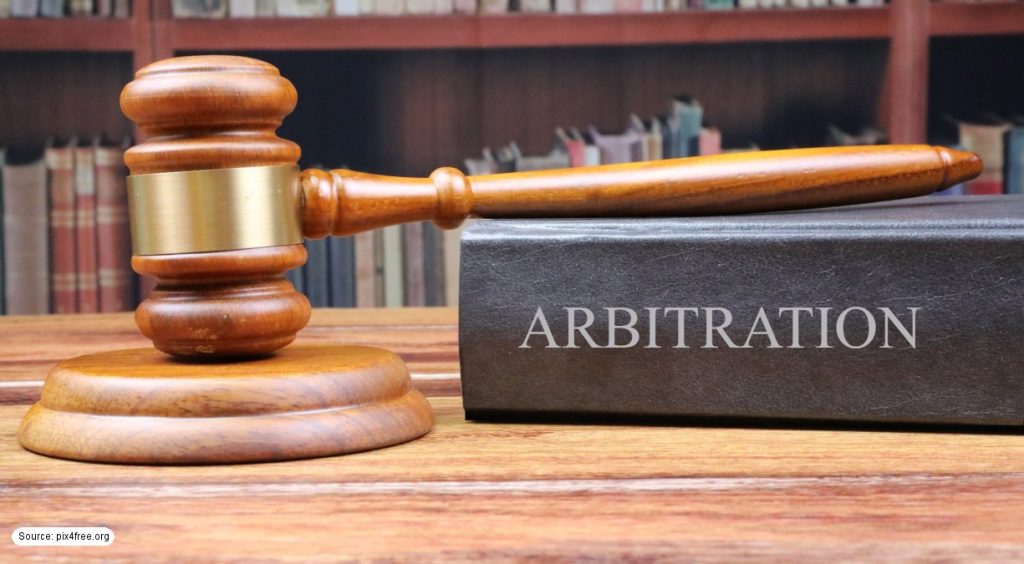What is Chargeback Arbitration?
Chargeback arbitration is where everything ends up if a dispute with a cardholder can’t be resolved any other way. At this point, an employee at Visa or Mastercard looks at the case and makes a ruling you can’t appeal. Cases with bulletproof documentation can go either way – it hinges on who reviews it and how they interpret the guidelines that day.
The fees alone will set you back $500 to $1,000, and that’s before factoring in all the prep work. I’ve watched businesses burn through 40-60 hours pulling together evidence, only to have their case decided on some technical detail they never knew existed. Unless the transaction is worth at least $2,500, you’re probably throwing money away. The only time arbitration makes sense is if you have something undeniable – security footage of the customer receiving the product, or their signature on a receipt with the right verification.
The employees making these decisions are usually 3-5 card network staff who’ve never worked in your industry. They get 30-45 days to review everything you send them, then their word is final. Legitimate businesses lose to obvious fraud, and customers with valid complaints get shut down on technicalities.
Even after winning, you’re still out those fees and all that staff time. Those same resources do far more when they go toward stopping disputes before they start. Make sure to maintain detailed records, verify customers properly, get delivery confirmations, and respond fast when that first dispute alert comes in.
How It Works
So you’ve already gone through the whole chargeback nightmare – sent in transaction records, delivery confirmations, all that documentation – and the issuing bank still sided with their customer. I’ve been through this myself, and to be honest, it feels like a punch in the gut when that representment fails.
At this point, you’re looking at pre-arbitration (that’s Mastercard’s term) or pre-dispute (Visa’s version). Card networks love their different names for the exact same process. The acquiring bank acts like the bouncer at the door – they look at your case and decide if it’s worth taking any further. Most acquirers are pretty careful about green-lighting these cases. If they think the evidence won’t hold up against the card network regulations, they’ll shut it down right there.
Here’s where it gets expensive. Remember that first chargeback fee of maybe $15-25? Well, pre-arbitration bumps that up to somewhere between $250 and $500. And if things go south, they lose those fees and the original transaction. Plenty of merchants walk away from completely valid $200 transactions because (let’s be honest) who wants to put $500 on the line to maybe recover $200?

If the acquirer gives the green light, the case goes to formal arbitration. The card networks become the courtroom – they’ll comb through the evidence, the issuer’s response, every transaction detail, and measure it all against their rulebook. These cases typically drag on for about 45-70 days, sometimes longer if complications arise.
Here’s where it gets painful – arbitration fees run $500-1,000 just to get the case in front of them. They follow their standards to the letter – there’s no room for “but this seems unfair” arguments. The processor files everything on behalf of the merchant. But you’re putting at least $500 on the line that the documentation aligns perfectly with some very specific regulations. Merchants almost never go through arbitration unless they’re fighting for something north of $2,000. Below that, the math just doesn’t work.
How it Affects Chargeback Prevention
Arbitration is where you end up when prevention fails. It’s the payment industry’s version of going to court, and if you’re there regularly, something’s broken in your process. I’ve seen the numbers – most merchants aren’t aware they’re losing money even when they win these cases. You’re looking at hundreds of dollars in fees before anyone even reviews your evidence, and your money from the original transaction? That’s locked up the whole time.
From what the data shows, merchants win maybe 20-30% of arbitration cases. Those might seem like decent odds until you start calculating the actual costs. Your team burns through hours (sometimes days) to pull together documentation, write responses, and hit deadlines. All for disputes you probably should have let go.
One merchant fought a $75 dispute all the way to arbitration. When they tallied up the fees, employee hours, and administrative overhead, they’d spent close to $400. They won the case but lost money doing it. Card networks are watching. They start asking uncomfortable questions when merchants hit certain arbitration thresholds. A few have even closed accounts over it.
What’s most troubling about arbitration is what it tells merchants about their business. Maybe the product pages are missing something customers need to know. Maybe the support team isn’t catching frustrated customers before they escalate to their banks. The patterns in arbitration cases reveal exactly what needs fixing – certain products generate disputes repeatedly, and the same customer complaints keep surfacing.
Example Scenarios
I’ve been dealing with subscription disputes lately, and they’re tough. Just last week, a customer cancelled their $79 monthly plan but swore they’d done it two months earlier than our system showed. So now they’re disputing $158 worth of charges. Our logs show they logged into their account during those months. But they say they were just trying to find how to cancel, not actually using anything.
Even if we fight this, arbitration fees would cost more than what we’d recover. Other businesses go through this with perfect documentation and still lose. Part of the problem is how some sites make cancellation confusing – they hide the cancel button or make customers confirm three different times. What helps is sending very obvious email confirmations, maybe even making customers click a link that says “Yes, I know my last billing date is date.” A few businesses started showing this big red banner after cancellation that says when the subscription actually ends.

Software disputes are a whole other mess. We had a customer buy a $200 license, download the software, then file a chargeback and claim they never authorized it. We could prove the download came from their registered IP address and everything. But here’s what we learned the hard way – arbitrators almost never side with sellers on downloaded products. Since you can’t get a signature on delivery or prove the customer physically received something, we’re out of luck.
After we got burned on a few of these, we finally added two-factor verification for any order over $50. Just a quick SMS code. One software company was losing thousands every month to chargebacks until they did the same approach – their disputes went down something like 70% after that.
Requirements & Timeframes
Build your paper trail from the first sale. Delivery confirmations, customer emails, tracking numbers – save everything. For transaction records, capture IP addresses, device fingerprints, AVS matches. Collect evidence that shows the actual cardholder made this order. And the terms of service? Make sure customers actively agree to them – checkboxes they have to click, not some link hidden in the footer that nobody reads.
The submission process changes wildly by network. Visa makes you use their VROL system with very particular formatting laws. Mastercard wants everything through Mastercom with different formatting. Then there’s American Express – they don’t even call it a chargeback. They use “inquiry” and give merchants 7 days to respond. Just 7 days to pull together everything and make the case.

If disputes go to arbitration, everything speeds up. The arbiter expects the full file – the first response, whatever the bank said back, any new evidence that’s been found. The merchants who actually win these fights set up every transaction like they’re building a court case from day one. Folders arranged by date, evidence labeled, everything ready to go. Because when that alert arrives, there won’t be time to dig through old emails.
Frequently Asked Questions
How much does chargeback arbitration cost?
I've been through enough arbitration cases to know they'll cost you at least $500 just to get started. Visa and Mastercard usually want somewhere between $500 and $1,000, and American Express - well, they usually charge even more. Then your processor comes along with their own administrative fees - anywhere from $50 to $200 extra.
And here's what's frustrating - you're paying these fees no matter how it goes. Win, lose, doesn't matter. So when you're looking at a $300 transaction and you're already down $700 in fees before you even start? You're lighting money on fire. If we're talking about a $5,000 chargeback, okay, maybe it starts to make sense.
But the fees are just part of it. One case required the team to spend probably 10-15 hours on old receipts, replies to card networks, and documentation searches from half a year ago. During all this, all the work that actually brings in money? It just sits there waiting.
Arbitration only makes sense if the transaction is worth at least twice what you'll spend fighting it. Sometimes you just have to let it go. It hurts to lose that money. But some fights just aren't worth having when the card networks are taking their cut either way.
What evidence do I need for chargeback arbitration?
I've seen card networks throw out stacks of paperwork because none of it actually answers why the customer disputed the charge.
What works depends on what the customer's claiming. If they're saying they never got their order, you need that delivery confirmation with a signature - and it needs to show delivery to their billing address, not somewhere else. Customer service records need to show when the conversation happened and who they talked to. Otherwise it just looks made up. For authorization disputes, you need something concrete showing the cardholder said yes to the charge. And if someone's complaining about quality, those terms they agreed to at checkout become your best defense - but only if they actually spell out what to expect.
Merchants make the same mistake all the time - they keep sending the same documents they used in the first dispute round. They'll submit those same three pieces of evidence through chargeback, pre-arbitration, everything. By the time it hits arbitration, those documents are useless. You need the full story now - actual email conversations where the customer acknowledges they bought something, login records showing they used your service for a month, shipping documentation down to the package weight that proves what was sent matches what they ordered.
Once you get to arbitration, you're looking at $500 to $1,000 just to have somebody review your case. Lose and that money's gone. Send in weak documentation and the customer gets handed a win before anyone even looks at the evidence. Your evidence has to match their complaint - if they're saying the product wasn't what they expected, show them the exact listing they saw, their order confirmation, and photos of what you sent. Your processor should be able to help you understand what evidence matters for different dispute types. Without solid documentation that directly answers the dispute, you're probably going to lose.
Can I appeal a chargeback arbitration decision?
No. Once arbitration goes against you, that's it - there's nowhere else to take it. The card networks make the final call, and there's no way to escalate past that. So you need your evidence lined up before going down this road. You get one shot to make the case stick.
What I've seen while working with merchants is that after losing arbitration, you can't continue fighting that particular chargeback anymore. It's usually worth looking at what went wrong and then fixing those gaps. Maybe your fraud detection missed something or maybe your terms weren't plain enough to customers. Every loss tells you something particular about where your business could be vulnerable. Merchants usually turn these expensive mistakes into better processes - it stings. But at least you learn something.
There's one interesting exception worth mentioning. If it turns out after arbitration that the customer actually committed fraud (like if the police investigate and confirm stolen cards were used) some networks will take on that liability themselves.
Since you can't undo an arbitration ruling, merchants should think hard before filing. The processor should talk about what evidence works for your situation. Most merchants won't bother with arbitration unless they're looking at $500 or more - otherwise the filing fee eats up most of what you might recover.
 Call (844) NO-DISPUTES
Call (844) NO-DISPUTES